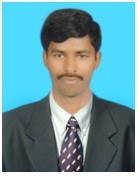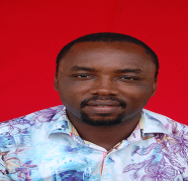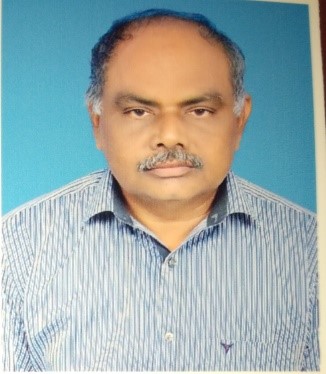Jan. 13, 2026
Mas’ud Bello, Ahmed D. Garba, Musa Abdullahi, Mustapha Bala
Glob Acad J Humanit Soc Sci; 2026, 8(1): 1-13
DOI : https://doi.org/10.36348/gajhss.2026.v08i01.001
| Journal Name: | Global Academic Journal of Humanities and Social Sciences |
|---|---|
| Abbr. Title: | Glob Acad J Humanit Soc Sci |
| ISSN(Print): | 2706-901X |
| ISSN(Online): | 2707-2576 |
| Frequency: | Bi-Monthly |
| Language: | English |
| Chief Editor: | Dr. S.A. Mohamed Salim |
| Publisher: | Scholars Middle East Publishers |
| Country of Origin: | United Arab Emirates |
Latest Articles
Jan. 13, 2026
Mas’ud Bello, Ahmed D. Garba, Musa Abdullahi, Mustapha Bala
Glob Acad J Humanit Soc Sci; 2026, 8(1): 1-13
DOI : https://doi.org/10.36348/gajhss.2026.v08i01.001
Dec. 16, 2025
Ria Blas, Laila Mahmoud Hassan
Glob Acad J Humanit Soc Sci; 2025, 7(6): 263-270
DOI : https://doi.org/10.36348/gajhss.2025.v07i06.004
Nov. 27, 2025
Julius Daniel Tingai
Glob Acad J Humanit Soc Sci; 2025, 7(6): 256-262
DOI : https://doi.org/10.36348/gajhss.2025.v07i06.003
Nov. 20, 2025
Melina C. Gonzales, Edd, Balmoria, Rodolfo, Bunso, Rochelle Kaye, Liton, Althea Stephanie, Mones, Elaisa, Petalcorin, Richel Mae
Glob Acad J Humanit Soc Sci; 2025, 7(6): 249-255
DOI : https://doi.org/10.36348/gajhss.2025.v07i06.002
Nov. 18, 2025
Musa Suleiman, Abu-Ubaida SANI
Glob Acad J Humanit Soc Sci; 2025, 7(6): 242-248
DOI : https://doi.org/10.36348/gajhss.2025.v07i06.001
Oct. 28, 2025
Kelvin Kiwale, Julius Daniel Tingai
Glob Acad J Humanit Soc Sci; 2025, 7(5): 229-241
DOI : https://doi.org/10.36348/gajhss.2025.v07i05.006
Oct. 8, 2025
Abdullahi Dahiru Umar, Musa Ahmad Sani
Glob Acad J Humanit Soc Sci; 2025, 7(5): 216-228
DOI : https://doi.org/10.36348/gajhss.2025.v07i05.005
Top Editors

Dr. Piyush Mani Maurya
Associate Editorial Board
Lecturer, Department of General Science & Humanities at Zeal Education Society;s Zeal Polytechnic, Pune , Maharashtra, India Email: piyush.jjtu@gmail.com

Mona Khaled Alebrahim
Associate Editorial Board
Lecturer at Um Alqurra Univeristy Makkah, Saudi Arabia Email: monalebrahim@gmail.com

Zayyanu Altine
Associate Editorial Board
Postgraduate, Department Of Islamic Studies, Faculty of Arts And Islamic Studies, Usmanu Danfodiyo University, Sokoto, Nigeria E-mail: zayyanualtine@gmail.com

Dr. Neerja Sood
Associate Editorial Board
Assistant Professor (Senior Scale) School of Health Sciences Indira Gandhi National Open University Maidan Garhi, New Delhi - 110068 India Email: neerjasood@ignou.ac.in

Dr. Lawrence Okoronkwo Udensi
Associate Editorial Board
Department of Sociology Faculty of Humanities, Management and Social Sciences Federal University of Kashere Gombe State, Nigeria Email: Ludensi@ymail.com

Salem Gdwar A ALfagira
Associate Editorial Board
Commerce and political science faculty, Sebha University, Sebha, Libya E-mail: shandwely2006@hotmail.com

Dr. Douglas Gasva
Associate Editorial Board
Quality Assurance Unit, Zimbabwe Open University, Zimbabwe Email: gasvad@yahoo.co.uk

Dr. P. Pachaiyappan
Executive Editor
Associate Professor, Department of Education, GRT College of Education, Tiruttani-631209. Tamilnadu, India. Email: greenfap@gmail.com

Victor Eyo Assi
Deputy Chief-Editor
Department of Sociology and Anthropology, Faculty of Social Sciences, University of Uyo, P.M.B. 1017, Uyo, Akwa Ibom State, Nigeria

Dr. S.A. Mohamed Salim
Editor-in-Chief
9 -14 , North South Street (Ecr Road), Ervadi Post, Ramanathapuram District, Tamil Nadu. Pin-623515, India Email: mohamedsalim6666@gmail.com
Track Your article
| Members in
Article formats
PDF (Portable Document Format) is a file format that has captured all the elements of a printed document as an electronic image that you can view, navigate read more...
A full-text database is a compilation of documents or other information in the form of a database in which the complete text of each referenced document is read more...
Contact us
Scholars Middle East Publishers,
Gold Souk, Deira, d – 24 D85,
Dubai, United Arab Emirates
+971-54-717-2569
submit.gajrc@gmail.com
Useful Links
Home
Aim and Scope
Author Guidelines
Subject Area
About Us
GAJRC (Global Acedemic Journals and Research Consortium) is an international scholar’s community which publish research paper under Scholars Middle East Publisher for open access scientific journals in both print and online publishing from Dubai, UAE. Read More Here
© GAJRC , All Rights Reserved